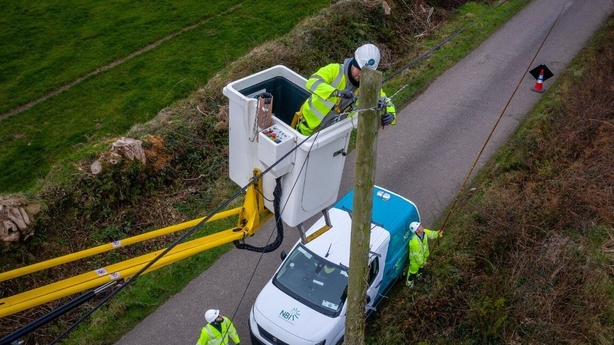New research has shown a mismatch between levels of satisfaction and experience of broadband performance among respondents, which suggests that people may be settling for less and missing out on the benefits of high-speed broadband.
The research from National Broadband Ireland, the company rolling out the National Broadband Plan, found that two in three people who were surveyed were satisfied with their broadband speed and reliability, with only slightly lower satisfaction among those who are remote working.
It also shows that 84% of broadband users who took part in the survey have experienced at least one of a range of connectivity issues including patchy internet coverage (72%), slow downloads (65%), poor signal during busy periods in the home (62%) and internet dropout (63%).
59% of consumers also reported a problem with buffering, while 33% said they had to turn off their computer camera in online meetings and 27% said they commuted to their office to avoid working from home.
NBI commissioned Core Research to undertake research among members of the public who are living within the NBP Intervention Area (IA) and will therefore be served by the NBI high speed fibre network but who have not yet availed of a connection.
National Broadband Ireland chief executive Peter Hendrick said that ComReg's most recent quarterly report showed impressive uptake and performance of fixed fibre broadband connections.
"This is backed up by the take-up rate on the NBI network which is averaging 30% and surpassing expectations and performance in other jurisdictions," Mr Hendrick said.

"However, the aim of NBI and the Irish Government is for more and more people to avail of high-speed fibre, and the research we commissioned shows there is still a gap in public understanding of the quality of reliability and speed which is now becoming available, which could see people missing out on the benefits of high-speed broadband," he said.
"The research, among 231 people who are resident in the National Broadband Plan Intervention Area but have not yet availed of a connection, showed that more than four in five respondents experienced at least one of a range of broadband connectivity issues and yet two in three are satisfied with speed and reliability," he said.
"This suggests some people may be settling for less because of a lack of awareness of the increasing availability and much better performance of high-speed fibre broadband," he added.

